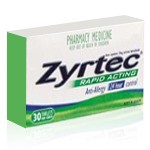Understanding Allergies: Causes, Symptoms, and Relief

Why Do Allergies Occur?
Allergies affect millions of people worldwide, but have you ever wondered why they happen? An allergy occurs when the immune system overreacts to a typically harmless substance, such as pollen, pet dander, or certain foods. Instead of ignoring these substances, the immune system perceives them as threats and releases histamines, leading to allergic reactions.
Common Causes of Allergies
Several factors can trigger allergic reactions, including:
- Pollen – A major cause of seasonal allergies, pollen from trees, grasses, and flowers can lead to sneezing and itchy eyes.
- Dust Mites – Microscopic creatures living in household dust can trigger asthma and allergic reactions.
- Pet Dander – Proteins found in animal skin, saliva, and fur can cause allergic reactions in sensitive individuals.
- Mold – Mold spores in damp environments can lead to respiratory issues and allergic symptoms.
- Certain Foods – Common food allergens include peanuts, shellfish, dairy, and eggs.
- Insect Stings – Bee, wasp, and ant stings can cause severe allergic reactions in some individuals.
Symptoms of Allergies
Allergic reactions vary depending on the allergen and individual sensitivity.
Some common symptoms include:
- Sneezing and runny nose
- Itchy, watery eyes
- Skin rashes or hives
- Shortness of breath
- Swelling of the face, lips, or throat (in severe cases)
- Digestive issues like nausea and diarrhea (food allergies)
Managing and Treating Allergies
While avoiding allergens is the best preventive measure, it’s not always possible. Various treatment options can help manage symptoms, including:
- Antihistamines – Help block histamines and reduce allergic reactions.
- Nasal Sprays – Alleviate nasal congestion and inflammation.
- Allergy Shots (Immunotherapy) – Gradually desensitize the immune system to specific allergens.
- Lifestyle Adjustments – Keeping windows closed during pollen season, using air purifiers, and washing bedding regularly can help minimize exposure.
Additional Tips for Allergy Prevention
To further protect yourself from allergies, consider these additional tips:
- Use High-Efficiency Particulate Air (HEPA) Filters – These filters help trap allergens and improve indoor air quality.
- Wash Hands and Face Frequently – Reduces pollen and other allergens on the skin.
- Wear Sunglasses and Hats Outdoors – Helps prevent pollen from getting into your eyes and hair.
- Shower After Outdoor Activities – Removes allergens from your skin and clothing before they spread inside your home.
- Monitor Pollen and Allergy Forecasts – Helps you plan outdoor activities accordingly to minimize exposure.
For effective and fast relief, many people turn to Zyrtec (Cetirizine), an over-the-counter antihistamine that provides 24-hour allergy relief. It helps reduce sneezing, runny nose, and itchy eyes without causing significant drowsiness. By incorporating Zyrtec into your allergy management routine, you can experience comfort and go about your day without constant interruptions from allergy symptoms.
Allergies may be a common problem, but with the right approach, they can be managed effectively. Understanding your triggers, adopting preventive measures, and using the right medication can make a significant difference in your quality of life.
Article Post: Editorial Team of RXShop.md
(Updated at Feb 14 / 2025)

